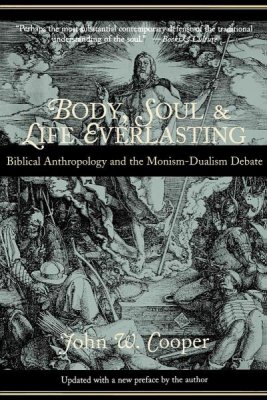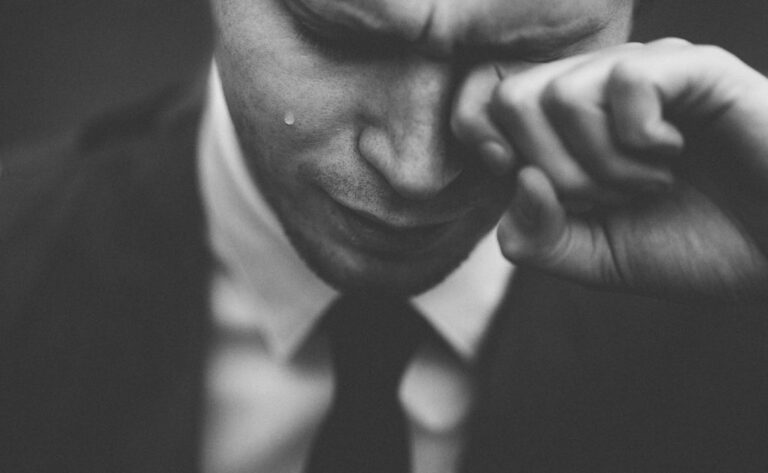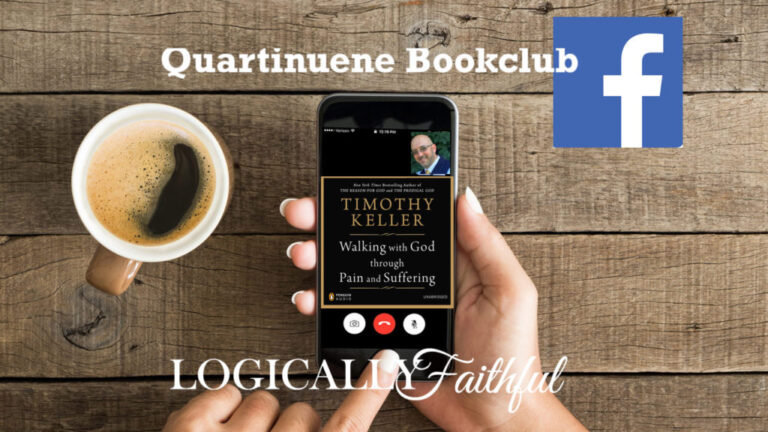Can a human person survive the destruction of his body? This is a question I struggled with as I tried to merge my theology with my philosophy, backed up with logic and sound reasoning. No, these are not mutually exclusive topics! G.K. Chesterton said that theology is that part of a religion that requires brains.
“The human body is the best picture of the human soul.”-Ludwig Wittgenstein. L. Wittgenstein, Philosophical Investigations (Oxford, 1953); 178; cited in Sydney Shoemaker, Self Knowledge and Self Identity (London: Cornell Press, 1963), 40
To address this issue, I embrace what John Cooper called, Holistic Dualism. I argue an entity is fully a human person when it is embodied. Nevertheless, it does not follow from that, that the biological body is logically necessary for all stages of the human person’s evolution.
We can turn the question around and ask it in the following way:
“Is it not logically possible that there could exist a world where there are human persons, but these human persons do not have human bodies?”
This is on the surface conceivable but upon reflection, it is not actually possible without first presupposing human bodies for these entities.
To explain, we must go back to
A full adult human person is a psychosomatic unity of two substances—body and soul. If a human person is one that at least has the body of a Homo sapien, then if there is a world where persons never had bodies of Homo sapiens, they would not qualify as human persons (Aliens or angels would be persons but not human).
“But we can imagine a world where this is possible,” some may object. But wait. Even if one is successful in imagining a possible world where persons exist but never had human bodies, we must ask, why refer to them as human persons? What do these entities look, talk, or think like? If you say they look, talk, or think like human persons, how is this possible without envisioning a body?
You literally cannot logically imagine a human person without sneaking in your preconceptions of human persons with physical bodies and then morphing or imposing anthropomorphic images on these other nonhuman “spiritual” entities.
There is in Christian theology a place called the “intermediate state.” This is supposed to be the state that the soul waits, after the death of its body for the final judgment and the reunion with its resurrected body.
Now, to imagine these human persons awaiting after-death judgment (as reported in the three great theistic religions) without human bodies, is on the surface possible. However, when you think deeper, it is not.
We still assume that these human persons were at one time in their existence embodied in biological homo sapien bodies. What we imagine are pseudo-human persons or shadowy reflections of former human persons. In the same way that we can imagine a castle that is incomplete, the blueprint of one
But even ghosts, the reader must admit, have in one way or another human body like characteristics. We can imagine human person’s psychological states surviving in a sort of ghostly shadowy reflection of their former physical bodies. Whichever way you cut it, every time you imagine a human person, you presuppose a human body in one way or another!
The bottom line is that disembodied existence for human
persons is illogical.
We cannot even imagine a world where a human person exists that does not have some form of a body.
Imagine for a moment with me. Imagine waking up without a body in a dream. You would then look down, to see
Even in this example, we assume the body, to look to see one’s lack of feet, chest, or face. But to look is to turn one’s head and use one’s eyes, but these “body” parts are not there!
When one leaves the room, what is leaving the room? How can you leave the room without feet? Even if you floated, that would mean you were in a set place in time and space, etc. We cannot have a human person exist without some connection with a body. Yet maybe we can have a human person exist that had at one time a body, and it was replaced by another body if this was part of a continuous mode of development. Thus I lean towards the idea that the concept of the living soul, existing without a body (of some sort), is unintelligible. At the most minimal, this kind of entity would not be a human person.[3]
Thus, there must be a “spiritual body” that is what the soul is, as it awaits it’s physical body to become one unit.
However, this does not mean that the intermediate state is also unintelligible either. Again, we could suppose that at the death of the biological body, the soul lives on as an immaterial body
The difference is important here. If we were to say that the soul is transferred to another ghostly or spiritual like body, we would still have to account for what it is that is being transferred. It would be a former human person that is now another kind of entity but a person nevertheless.
He would not be disembodied because the very concept is incoherent. Instead, I argue that to make an afterlife plausible, we would have to argue that the soul itself is its own body-substance and is not transferred to another body but is itself a sort of body. It is not a body in the sense of being biological, but it is a body in the sense that it is a concrete entity in time and space that fits the criteria for being its own substance.
The problem with this criterion, I admit, is that it limits the possibility of human conceivability.
Of
But if one allows for the possibility that the conceiver is omniscient, then the possibilities become infinite. Nevertheless, we do not have access to this knowledge now, so I will assume what I can or cannot know right now–in humility.
Can a human person survive the destruction of their mind?
Can a human person survive the destruction of their mind? Before we can address this question, we need to address the question of essence. What does it mean to say that x is the essential component of y? The standard answer is that if there is a possible world where y can exist without x, then x is not an essential property of y.
I hold that the psychological and the biological substances are both essential to a human person’s identity.
However, I do not hold that without psychological states or a biological body the person cannot exist. Essential properties can be essential for a certain stage of existence. I hold that a person is essentially a soul and body at a certain stage of his or her existence.
The Cartesian assumes that the person is identical to the mind—remove the mind and the person is just a hunk of flesh. Alternatively, in medical terminology some hold that brain death is equivalent to the death of the person.
Even brain death has been debated as an adequate criterion for death, see Potts M, Byrne PA, Nilges RG, editors. Beyond Brain Death: the case against brain based criteria for human death (Dordrecht: Kluwer Academic Publishers; 2000).
This is not the case with the holistic dualist position I am arguing. The human person would still be a human person even if their mind no longer functioned because they would be of the natural kind, a human.
A human person would still be a human person in a coma or persistent vegetative state (PVS) or as a fetus.
For the holistic dualists, at a certain stage in one’s life it is essential that you are one substance; at a later stage of your life, it is essential that you are two. This avoids the fetus problem which says you cannot be a person yet if you are fetus because you cannot think ( no brain–thus no mind, when you are a fetus).
I am the same entity that was conceived because “I” am both a body and a soul, at a certain point of my existence, and a body and soul at another stage of my existence.
I am, in my full nature, a being that is both a soul and a body; a psychosomatic unity.
At my death, this unity will
At the resurrection of the dead, I will be a fully integrated system by the hand of God. And if I am redeemed by the blood of the lamb, born again, or saved, I will live out eternity with the Holy
Cs Lewis put it this way
“It is a serious thing to live in a society of possible gods and goddesses, to remember that the dullest most uninteresting person you can talk to may one day be a creature which, if you saw it now, you would be strongly tempted to worship, or else a horror and a corruption such as you now meet, if at all, only in a nightmare. All day long we are, in some degree helping each other to one or the other of these destinations. It is in the light of these overwhelming possibilities, it is with the awe and the circumspection proper to them, that we should conduct all of our dealings with one another, all friendships, all loves, all play, all politics. There are no ordinary people. You have never talked to a mere mortal. Nations, cultures, arts, civilizations – these are mortal, and their life is to ours as the life of a gnat. But it is immortals whom we joke with, work with, marry, snub, and exploit – immortal horrors or everlasting splendors.”
― C.S. Lewis, The Weight of Glory[
Thus, as a holistic dualist, I am res
A human person is something that is conceived in a womb, loses his brother’s toys, ponders philosophy, feels the wind on his face, forgets its father’s birth date, has his heart broken, eats chocolate, writes a blog about his nature, and hopes and trusts that he will continue to exist after the death of his body eternally with the same God who also had a dual nature as a man on earth, and rose from the dead so that any who trust Him will also rise.
What do you think?





